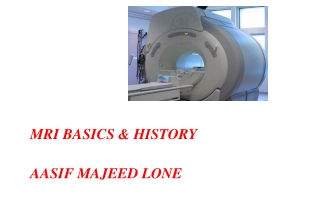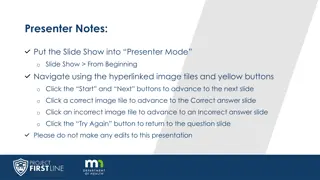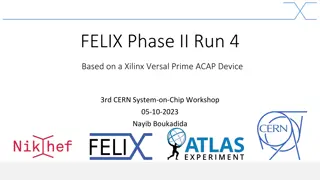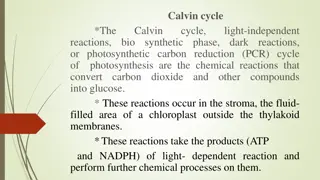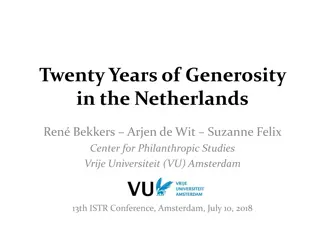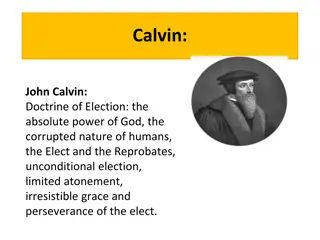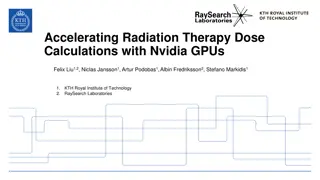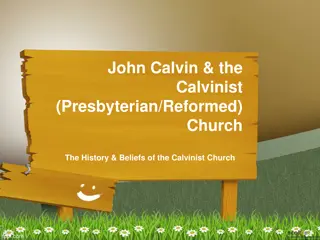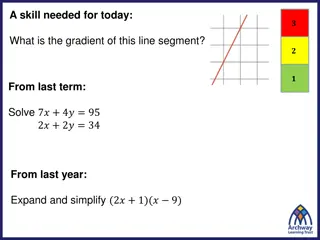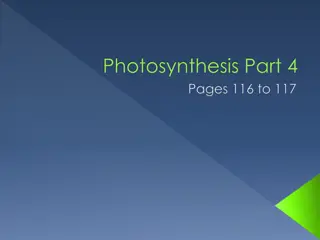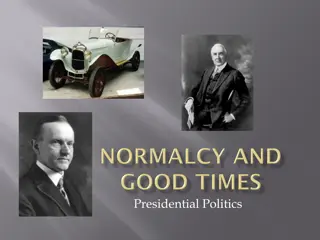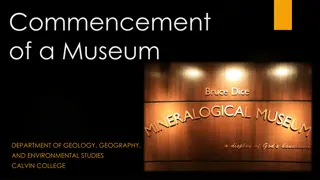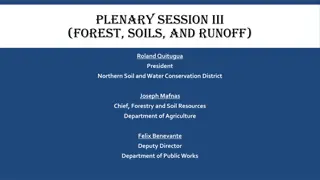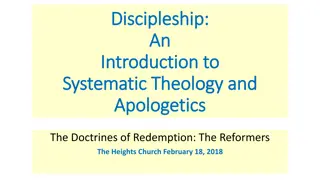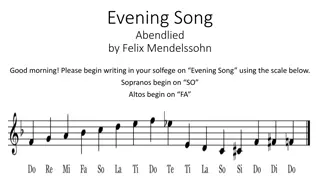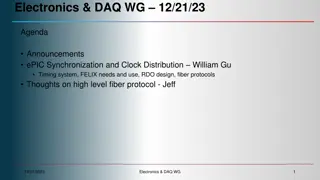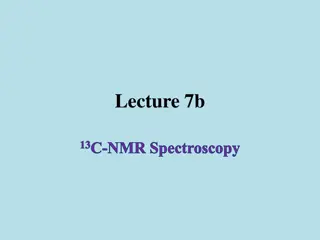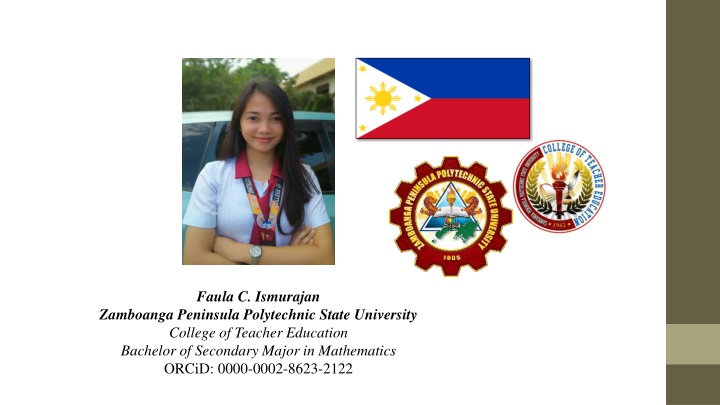
Investigating Relationship between Self-Concept and Attitude Towards Mathematics among Pre-Service Teachers
Explore the study focusing on the correlation between self-concept and attitude towards mathematics among pre-service teachers at Zamboanga Peninsula Polytechnic State University. The research objectives, theoretical framework, methodology, and initial results are discussed in detail.
Download Presentation

Please find below an Image/Link to download the presentation.
The content on the website is provided AS IS for your information and personal use only. It may not be sold, licensed, or shared on other websites without obtaining consent from the author. If you encounter any issues during the download, it is possible that the publisher has removed the file from their server.
You are allowed to download the files provided on this website for personal or commercial use, subject to the condition that they are used lawfully. All files are the property of their respective owners.
The content on the website is provided AS IS for your information and personal use only. It may not be sold, licensed, or shared on other websites without obtaining consent from the author.
E N D
Presentation Transcript
Faula C. Ismurajan Zamboanga Peninsula Polytechnic State University College of Teacher Education Bachelor of Secondary Major in Mathematics ORCiD: 0000-0002-8623-2122
Zamboanga Peninsula Polytechnic State University Zamboanga City, Philippines 6.9214 N, 122.0790 E
Investigating Relationship between Self Concept and Attitude Towards Mathematics among Pre-Service Teachers Lyca L. Alvarez ORCiD: 0000-0001-8239-2180 lycaleonardo200@gmail.com Calvin Klein H. Felix ORCiD: 0000-0002-2259-4925 Khenfelix67@gmail.com Faula C. Ismurajan ORCiD: 0000-0002-8623-2122 ismurajanathena@gmail.com Alsani N. Samlani ORCiD: 0000-0001-8469-1766 alsanisamlani13@yahoo.com Karen D. Rosas ORCiD: 0000-0002-8705-177X bessyforeverlove@gmail.com
Background and Objectives of the Study Positive self concept and attitude towards Mathematics is essential for preservice teachers. Self-concept and Attitude towards Mathematics (Demirel & Dagyar, 2016) The following are the objectives of the study: To examine the level of self-concept of the pre-service teachers. To know the attitude of the pre-service teachers towards math. To determine the relationship between self-concept and attitude towards mathematics among the pre-service teachers.
THEORETICAL FRAMEWORK Figure 1: Academic Self-Concept and Attitude Model Source: Adapted from Shavelson, Hubner & Stanton (1976) Model of Academic Self-Concept
METHODS Self- Descriptive Questionnaire (SDQ II) Marsh, 1990 Attitude towards mathematics (ATMI) Tapia and Marsh, 2004 PARTICIPANTS: Mean, standard deviation and Pearson's r correlation. 204 Pre-service teachers of Zamboanga Peninsula Polytechnic State University Descriptive Survey Design
RESULTS AND DISCUSSION Research Question 1: What is the level of self- concept of pre- service teachers?
(5) (4) (3) (2) (1) (5)+(4) (3) (2)+(1) I look forward to mathematics classes I hate mathematics I do badly in tests of mathematics I often need help in mathematics Mathematics is one of my best subjects I never want to take another mathematics course. I get good marks in mathematics I have always done well in Mathematics I have trouble understanding anything with mathematics in it It's important to me to do well in mathematics classes 25 91 76 8 0 116 76 8 8 19 61 79 33 27 61 112 10 39 103 46 2 49 103 48 41 85 68 5 1 126 68 6 22 42 94 35 7 64 94 42 8 42 91 51 8 50 91 59 15 61 102 19 3 76 102 22 5 54 112 25 4 59 112 29 16 47 108 25 4 63 108 29 41 110 46 3 0 151 46 3
RESULTS AND DISCUSSION Research Question 1: What is the level of self- concept of pre- service teachers? Level of Self-Concept Mean 3.5073 SD Self - Concept 0.5802 The self-concept of pre-service teachers of ZPPSU has been described as an average Self-concept.
RESULTS AND DISCUSSION Research Question 2: What is the attitude of the pre-service teachers toward math?
Self-Confidence 5 4 3 2 1 (5)+(4) 3 (2)+(1) I am comfortable expressing my own ideas on how to look for solutions to a difficult mathematics experiment. A strong mathematics background could help me in my professional life. 0 94 62 7 1 94 62 8 V 78 96 24 2 0 174 24 2 I am comfortable answering questions in mathematics class. 15 80 94 10 1 95 94 11 I am willing to take more than the required amount of mathematics. I am happier in a mathematics class than in any other class. 21 76 86 17 0 97 86 17 19 49 42 83 99 61 39 6 1 1 61 132 99 61 40 7 Mathematics is a very interesting subject. I would prefer to do an experiment in mathematics than to write an essay. I believe studying mathematics helps me with problem solving in other areas. The challenge of mathematics appeals to me. I plan to take as much mathematics as I can during my education. 28 46 85 33 8 74 85 41 57 33 104 106 37 54 2 7 0 0 161 139 37 54 2 7 19 86 71 23 1 105 71 24
Value 5 4 3 2 1 (5)+(4) 3 (2)+(1) Mathematics is one of the most important subjects for people to study. Mathematics helps develop the mind and teaches a person to think. 88 76 32 4 0 152 32 4 85 119 120 97 69 63 18 11 16 0 1 1 0 0 0 182 188 183 18 11 16 0 1 1 I want to develop my mathematics skills. Mathematics is important in everyday life. I get a great deal of satisfaction out of mathematics experiments. 29 84 10 8 11 3 79 8 0 113 79 8 High school mathematics courses would be very helpful no matter what I decide to study. 55 33 4 0 163 33 4 I can think of many ways that I use mathematics outside of school. 39 43 5 0 152 43 5 67 94 98 83 33 20 2 3 0 0 165 177 33 20 2 3 Mathematics is a very worthwhile and necessary subject. I think studying advanced mathematics is useful. I believe I am good at mathematics experiments 13 36 106 39 6 49 106 45
Enjoyment 5 4 3 2 1 (5)+(4) 3 (2)+(1) I expect to do fairly well in any mathematics class I take. I am able to do mathematics experiments without too much difficulty. I have a lot of self-confidence when it comes to mathematics 23 91 77 8 1 114 77 9 8 47 99 40 6 55 99 46 11 49 93 39 8 21 63 83 28 5 8 50 95 39 8 60 84 58 93 83 95 47 33 47 I like to do new experiments in mathematics. I learn mathematics easily.
5 4 3 2 1 (5)+(4) 3 (2)+(1) Motivation 4 23 77 71 25 27 77 96 I would like to avoid using mathematics in college. 28 47 101 19 5 75 101 24 I really like mathematics. It makes me nervous to even think about having to do a mathematics experiment. 18 85 82 12 3 103 82 15 11 37 73 67 12 48 73 79 Mathematics makes me feel uncomfortable. 19 64 82 26 9 83 82 35 Studying mathematics makes me feel nervous.
RESULTS AND DISCUSSION Research Question 2: What is the attitude of the pre-service teachers toward math? Level of Math Attitude Math Attitude Subscale Self - Confidence Values Enjoyment Motivation Overall Mean SD 3.1324 3.2048 3.1092 3.5457 3.248 0.4712 0.2835 0.451 0.5635 0.4016
RESULTS AND DISCUSSION Research Question 3: Is there a significant relationship between the math attitude and self-concept? Subscales R value P-value Self-confidence and self-concept R is 0.7391 0.00001 < 0.05 Value and self-concept R is 0.7767. 0.00001 < 0.05 Enjoyment and self-concept R is 0.9126 0.00001 < 0.05 Motivation and self-concept R is 0.9951 0.00001 < 0.05 Math attitude and self-concept R is 0.9592 0.00001 < 0.05
CONCLUSION There is a substantial relationship between Math self-concept and attitude toward mathematics among ZPPSU pre-service teachers, according to the results of a study. The findings also show a relationship between self-concept and attitude (Fennema and Shermaan, 1976; Vale and Leder, 2004; Bryant, 2015; Adown, 2016). This is significant since academic accomplishment is linked to having a positive self-concept and attitude toward a subject like mathematics.
RECOMMENDATION FUTURE RESERCHERS TEACHERS SCHOOL
REFERENCES Tobias, S. Overcoming mathematics anxiety, In H. J. Sherman & M. Christian (1999). Mathematics attitude and global self- concept: An investigation of the relationship. College Student Journal. Allport, G. W., Odbert, H. S., & Harvard Psychological Laboratory. (1936). Trait- names: A psycho-lexical study. Princeton, N.J: Psychological Review Company. Marsh, H. W., & Hau, K. T. (2003). Big-Fish--Little-Pond effect on academic self- concept: A cross-cultural (26-country) test of the negative effects of academically selective schools. American psychologist, 58(5), 364. Kojigili, S. T., (2020). Correlates of Self-Concept, Attitude and Mathematics Performance of Senior Secondary School Students in Nigeria. PEOPLE: International Journal of Social Sciences, 6(1), 397-410.
REFERENCES Marsh, H.W, (1990b). Self-descriptive Questionnaire(SDQ II) Manual, Macarthur: University of Western Sydney. R.J. Shavelson & H.W. Marsh, Self-Concept: Its Multifaceted Hierarchichal Structure. http://www.researchgate.net/publication/2616.18 629 Sax, LJ. Mathematical Self-Concept: How College reinforces the Gender Gap . Research in Higher Education, Vol. 35, No. 2 (Apr., 1994). Pp. 141-166. http://www.jstor.org/stable/401 96 084 Stearn, K.E. (2017). Unpublished certificate of advanced study thesis, Sacred Heart University Fairfield, CT. Retrieve from http://digitalcommons.sacredheart.edu/edl/19
REFERENCES D. Mahanta (2014), Impact of Attitude and Self-concept of the Students towards Mathematics upon their achievement in Mathematics. International journal of theoretical & applied science, 6(1): 20-35 (2014) Kilman, Taylor Andrew, The Relationship between Students Applied Mathematics Skills and Student s Attitude towards Mathematics (2015) Dissertatin 54. http://aquilla.usm.edu/dissertation/54 Parker, P. D., Marsh, H.W., Ciarrochi, J., Marshall, S., & Abduljabbar, A. S. (2014). Juxtaposing math self-efficacy and self-concept as predictors of long-term achievement outcomes. Educational Psychology, 34(1), 29-48. Tapia, M. & Marsh, G.E. (2004). An Instrument to Measure Mathematics Attitudes. Academic Exchange Quarterly, 8(2), 16-21.
REFERENCES Marsh, H.W. (1992). Content specificity of relations between academic achievement and academic self-concept. Journal of Educational Psychology, 84(1), 35-42. Maria de Lourdes Mata, Vera Monteiro, Francisco Peixoto, Attitudes towards Mathematics: Effects of Individual, Motivational, and Social Support Factors , Child Development Research, vol. 2012, Article ID 876028, 10 pages, 2012. https://doi.org/10.1155/2012/876028 Yasar, M. (2016). High school students attitudes towards mathematics. Eurasia Journal of Mathematics, Science and Technology Education, 12(4), 931-945.

